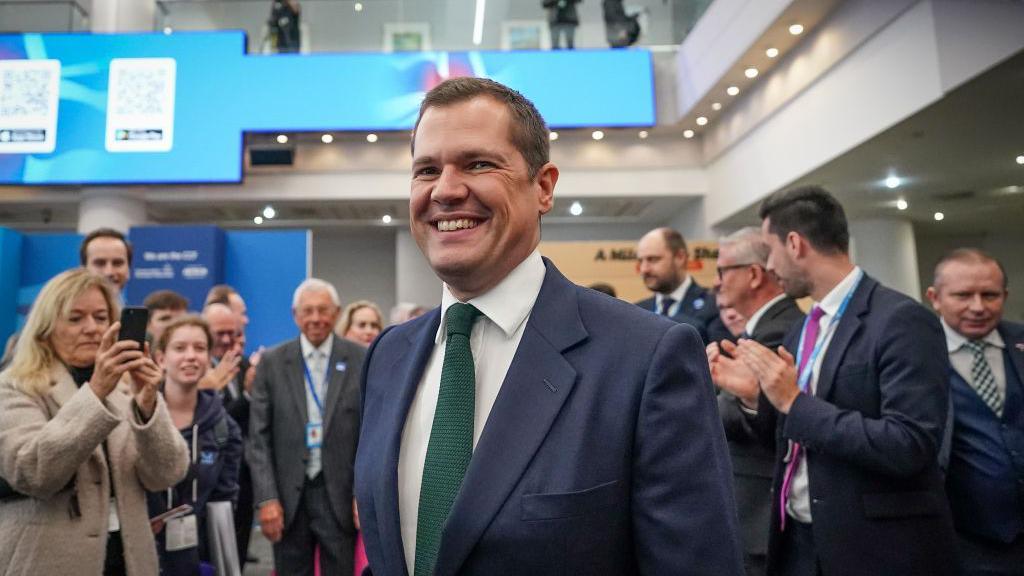Why the next Tory leader needs to go Cornish
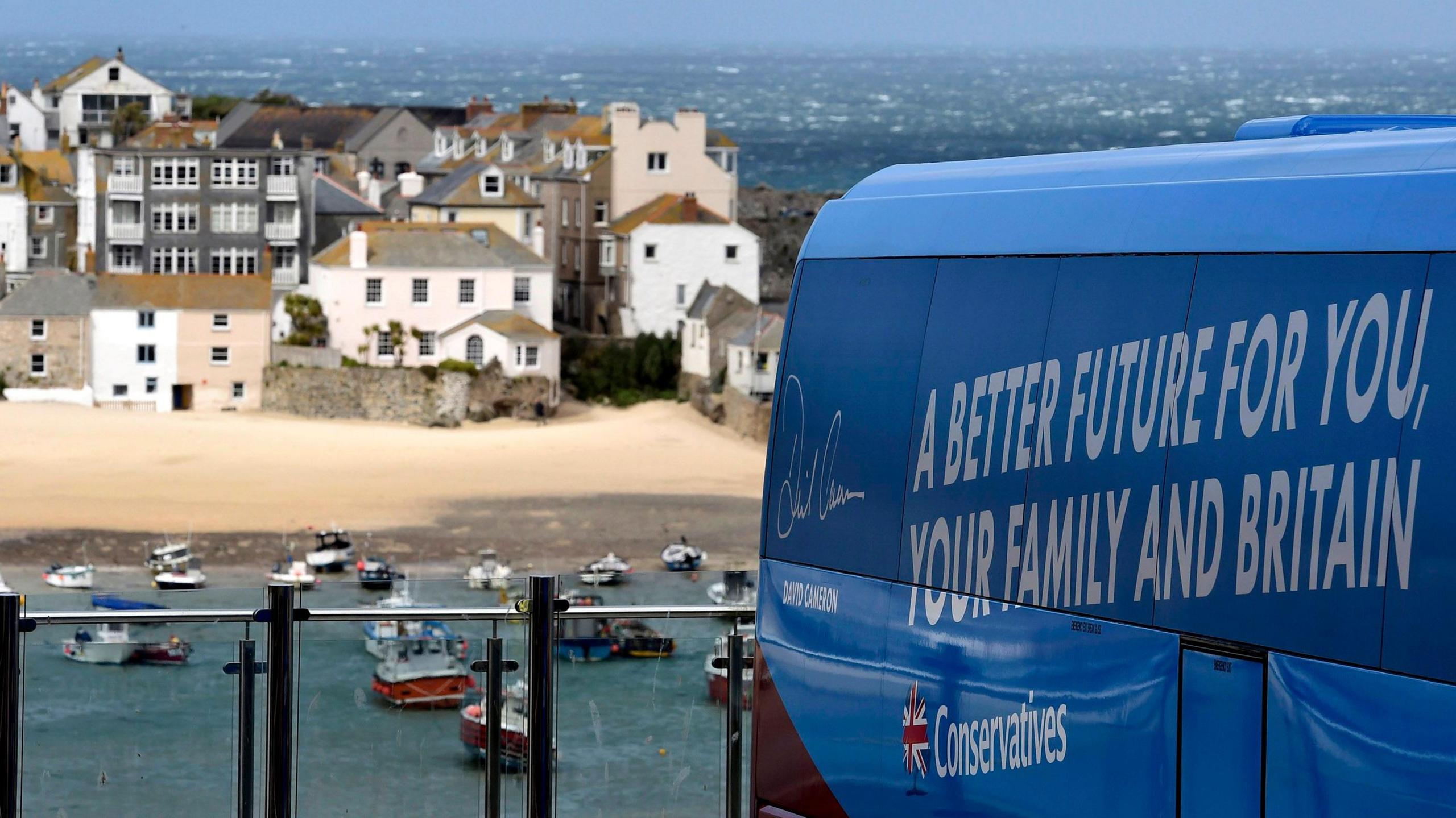
- Published
Next Saturday we will finally find out who the Conservatives have chosen as their next party leader - and the leader of the UK government's official opposition.
The two contenders, Kemi Badenoch and Robert Jenrick, are both seen as being on the right of the party, and their core messages, on immigration and cultural issues, seem designed to win back support from Nigel Farage's Reform UK.
But the new leader will also need to do something about the votes the Tories lost to the Liberal Democrats and Labour in July's general election, if they are going to restore their party's battered fortunes.
Few parts of the country illustrate the challenge the new leader will face better than Cornwall.
The county used to be a sea of Conservative blue. Until recently, the party held all six Parliamentary seats.
But the tide turned in July's election, and they were all washed away.
The Tories lost four seats to Labour and two to the Lib Dems, while Reform UK took votes across the board.
In the market town of Liskeard, which sits in a constituency the Tories lost to Labour, Richard Dorling chairs the South East Cornwall Conservative Association and spent time during the election knocking on doors and hearing voters’ concerns.
“They’re looking for people to take charge and reduce immigration and stop the boats, and Reform have a very strong story for that,” he said.
“Whoever gets into the leadership position is going to have to come up with a new plan to tackle that, and get the voters back.”
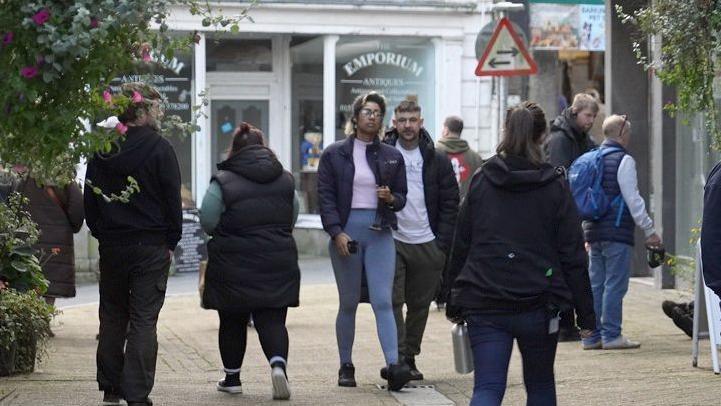
Liskeard is now in a Labour constituency, after the party overturned a big Tory majority
While some Tories argue addressing the concerns of voters attracted to Nigel Farage’s party is crucial, others have warned against tacking to the right to counter the threat posed by Reform UK, for fear it will permanently alienate more centrist former Conservative supporters who turned to Labour or the Lib Dems.
When Kemi Badenoch and Robert Jenrick became the final two candidates, it was widely seen as a signal the party would shift to the political right.
Connor Donnithorne, who stood for the Conservatives in Camborne & Redruth but lost to Labour, said focusing on the party’s position on the political spectrum was the wrong approach.
“You need to be in the common ground of British politics if you want to win,” he said. "That doesn’t mean you have to be in the centre, or the left or right.
“If we go down that path over the next five years, we’re not going to win again because you’re too focused on the internal politics of parties that the overwhelming majority of people in this country don’t actually care about."
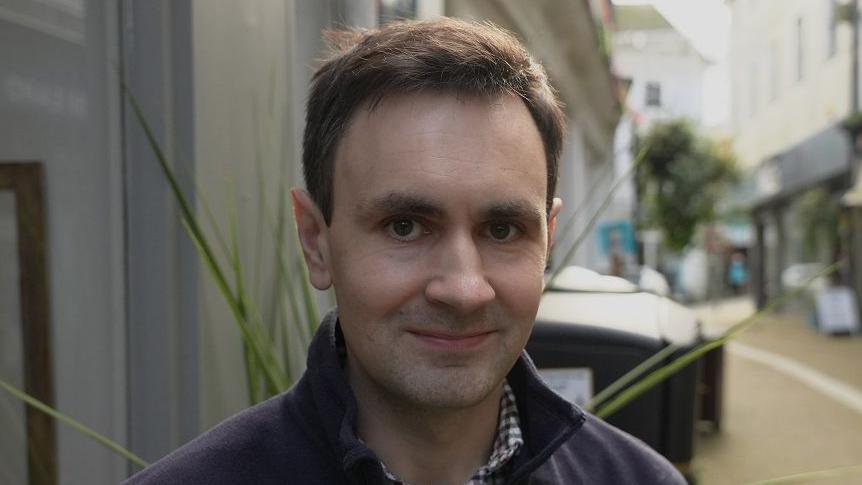
Councillor Nick Craker is worried the ECHR issue will be divisive
He argues that the party needs to focus on "common ground" issues such as "controlled immigration, lower taxes for working people, and supporting small businesses to create jobs".
"It’s about having credibility, it’s about being in touch with what people want and it’s about delivering what you say you’re going to deliver,” he adds.
It’s not just their fractured voting base the new Conservative leader will have to win round.
Kemi Badenoch or Robert Jenrick will have to unite a parliamentary party that’s been publicly arguing over its differences for years - and has been pretty adept at ousting leaders.
In reaching the final two, neither candidate won support from a majority of MPs, so whoever wins will do so knowing only around a third of the parliamentary party backed them.
Nick Craker, a Conservative councillor in Cornwall, said the leadership candidates need to focus on policies that unite the Conservatives rather than those that have the potential to divide them, including Robert Jenrick’s plan to leave the European Convention on Human Rights (ECHR) and “culture wars” confronted by Kemi Badenoch.
“The idea of leaving the ECHR, for example, makes me very nervous,” said Mr Craker.
“I just see that as a really divisive issue that’s going to cause infighting. I just think if you bring something like that forward, there’s going to be at least 50 MPs who are going to be very concerned about it.
“Similarly with some of Kemi’s ideas around gender and race and the culture wars, that makes me a bit nervous, because again she may have some really sound arguments to make on that, but there another 50 MPs at least that have probably got very different views to her and that’s going to just sow a bit more division and infighting.
"And what have we learnt from the last election? Divided parties don’t win.”

Cornwall's dramatic coastline was once ruled over by the Conservatives
Badenoch and Jenrick are currently pitching to the party membership who are casting their ballots in this contest, but it will not be long before one of them will have to start pitching to the country.
In Cornwall, one message reflected by activists is the need for the party leadership to talk to grassroots members of the party who, they say, understand the issues in their communities.
Alison Hernandez, the Conservative Police and Crime Commissioner for Devon and Cornwall, said: “I think they’ve lost their way with being able to connect with members and activists in the party, and I think that needs to change – that connection.”
Of course, whoever leads the Conservative Party after 2 November will do so as a party of opposition – something neither Robert Jenrick or Kemi Badenoch have experienced as MPs.
That makes fighting for relevance harder when airtime and attention doesn’t come as easily.
Ms Hernandez added: “It feels like we’re invisible at the moment on the national stage, and it’s really important we’ve got someone who can embody the values of Conservatism and communicate that to the wider public.”
The Conservative Party is wrestling right now with what those values are, but the bigger question will ultimately be what the public makes of them.
Related topics
- Published22 October 2024
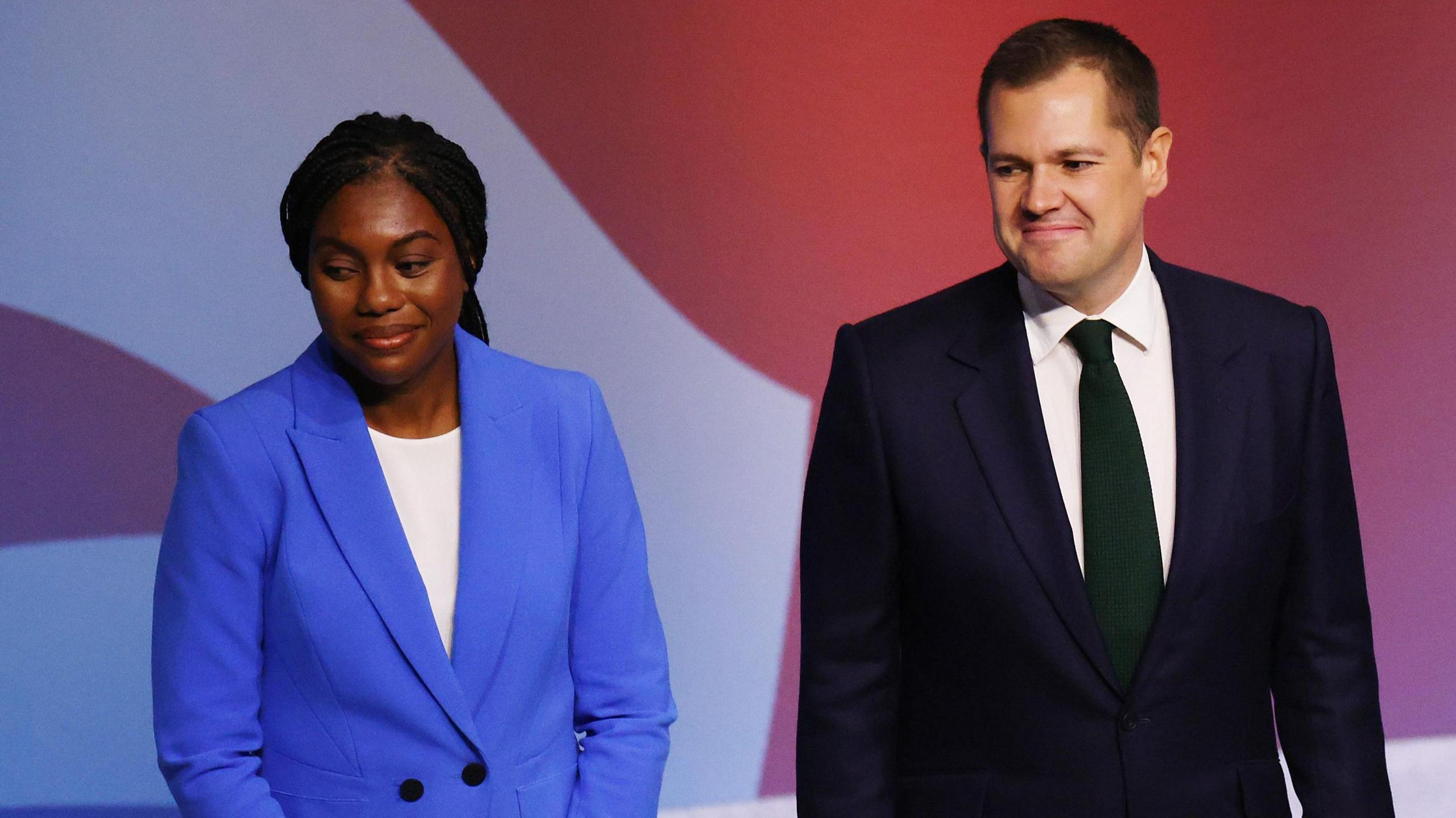
- Published2 November 2024
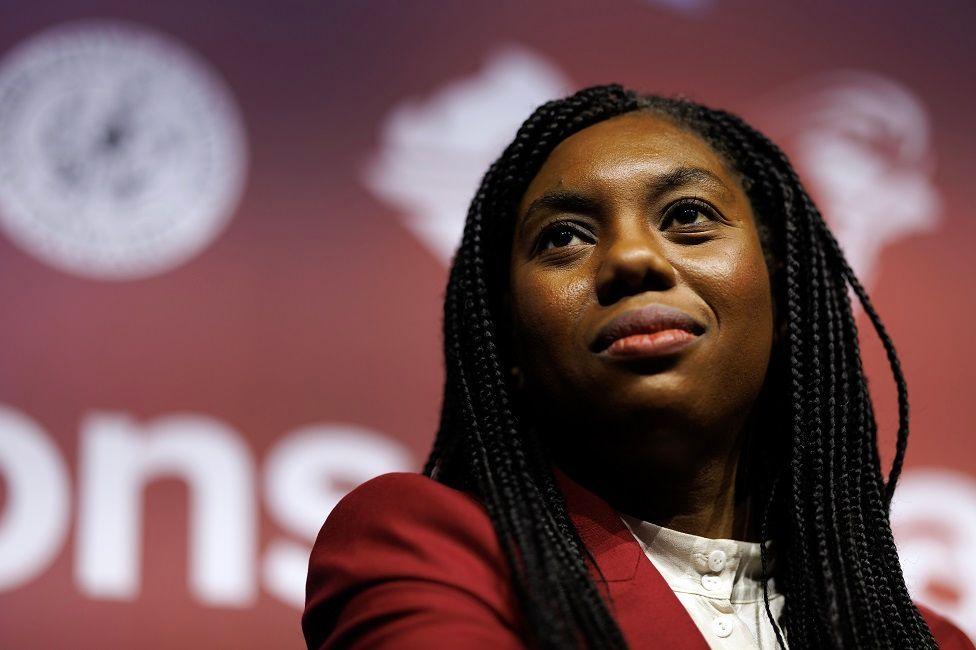
- Published17 October 2024
